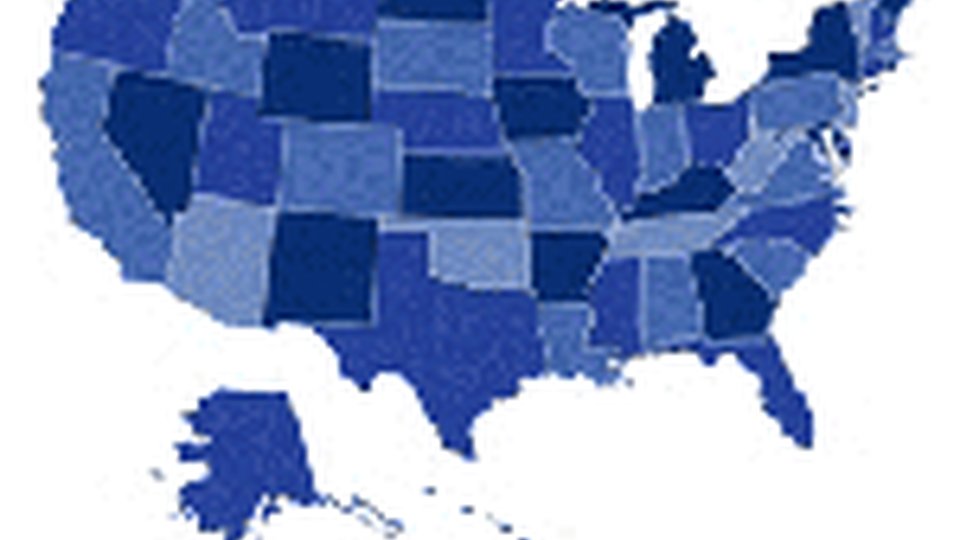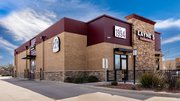Article
Knowing each market essential for QSR growth
Consulting services can help brands know where to build, when to pull out and how to reach local audiences.

April 22, 2009
The quick-service segment may be faring better than other restaurant categories, but sales are typically leaner than in past years. A multiunit operator's knee-jerk reaction may be to close all underperforming stores or hold off on building new ones.
Brian Hill, practice leader, restaurant predictive analytics for Pitney Bowes Business Insight (PBBI), said such decisions should not be made unilaterally or without understanding each individual market.
"Even for seasoned professionals, it's very difficult right now to try and put your finger on what's happening with the marketplace," he said. "A lot of our clients are asking, 'When do you think this is going to turn around,' and the answer is different for every market."
PBBI has developed Market Pulse to help multiunit operators with network planning as well as local store marketing and lease or finance negotiations. For quick-service restaurants, the business development tool compiles data from 60 economic indicators and correlates that information to a specific brand and its individual markets.
Typically during a down economy, multiunit operators tend to shore up their store portfolio by "cutting off the tail," Hill said. Unfortunately, such decisions are made based on a unilateral performance standard rather than economic indicators in each market.
"You could be getting out of a market that is showing an upswing, and maybe you should be holding onto that market," he said.
Market Pulse examines how stores in different markets respond to various economic indicators, from unemployment to disposable income. It also determines when such indicators affect stores in each area.
Understand your market opportunities
A consultant can help operators use that data when a store's lease is up, for example. The operator may be considering relocating or rebuilding, and having an insight into the economic forecast for that store's location is beneficial.
"They may lean toward scrap and rebuild in better markets and get out of less favorable markets that don't show any quick return to any type of a viable economic situation," Hill said.
Market Pulse's data also is valuable during lease or financing negotiations, when such information can work in the operator's favor.
"This is powerful data that can help a QSR renegotiate a more favorable position," Hill said.
PBBI's Market Pulse also can help with a brand's local store marketing plan, allowing an operator to tailor messaging by area. For instance, a California store may be in a depressed market with double digit unemployment where meal deals are necessary to draw traffic. A store in the Midwest, where unemployment may be only in the single digits, would not need that level of special offer.
"That may be simply reducing your margin in an area where you don't really need to do that," Hill said.
Predictive analytics help plan for growth
While Market Pulse is especially helpful in today's economy, operators also are turning to consultants for traditional real estate consulting services. PBBI uses predictive analytics — of which Market Pulse is one tool — to help operators determine where to enter new markets or build new stores.
Hot dog chain Johnny's Lunch first turned to PBBI in 2006 for help with development of the brand and its growth model. In today's economy, the company uses PBBI's consulting services to "evaluate the inventory of distressed real estate in territories where we have development commitments," said Tony Calamunci, chief executive officer for Johnny's Lunch.
"We sell territories to area representatives based upon opportunities within the given DMA, not based upon population," Calamunci said. "Therefore, predictive analytics is the foundation of our growth/business model."
Hill said brands and franchisees are still building new units this year, but the number is often half of a typical one. Deciding where to locate those stores is a critical decision in today's economy, as one client pointed out.
"One franchisee's comment to me was, 'Boy, in a time like this, I can't afford to make a mistake,'" Hill said.
Having the right information for a particular brand and by market is essential to preventing such mistakes, especially since some regions are more depressed than others.
"It's different everywhere," Hill said. "It's not just a broad brush that every area throughout the United States has been impacted. So you really want to make an impact on your bottom line, knowing what to market to whom and where, what to order and when, when to pull out and when to negotiate — all of those things, information is (power)."









